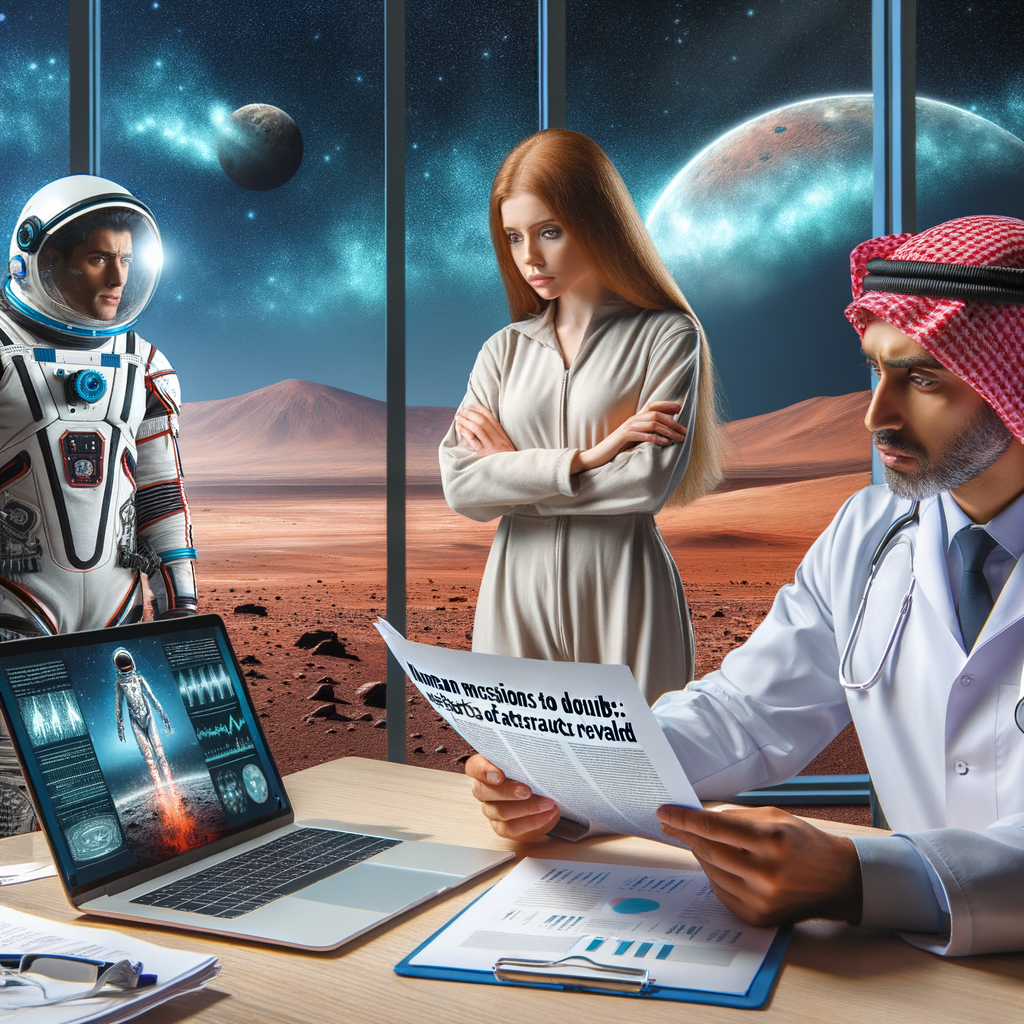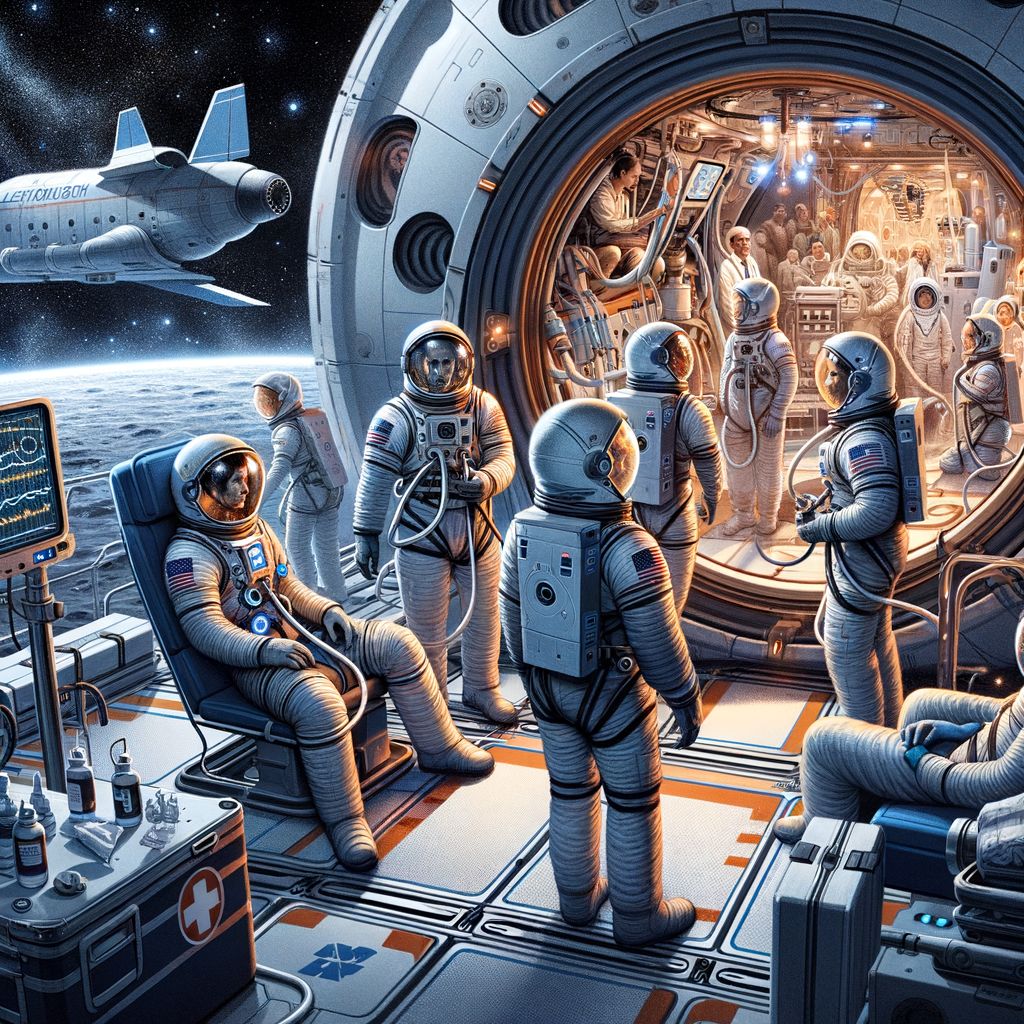Human Mission to Mars in Serious Doubt after Discovery Made on Effects to Astronaut’s Bodies
A groundbreaking discovery made by NASA scientists has cast serious doubt on the feasibility of a human mission to Mars. The research, published in the journal Nature, reveals that prolonged exposure to microgravity, as experienced during space travel, has detrimental effects on the human body that could pose insurmountable challenges for astronauts on a Mars mission.
The Effects of Microgravity on the Human Body
Microgravity, the near-weightless environment of space, disrupts the body’s normal physiological functions. Astronauts experience a range of adverse effects, including:
- Bone loss: Microgravity causes the bones to lose density and become weaker, potentially leading to fractures and increased risk of osteoporosis.
- Muscle atrophy: Prolonged exposure to microgravity causes muscles to weaken and lose mass, resulting in reduced mobility and impaired performance.
- Immune system suppression: The immune system becomes suppressed in microgravity, making astronauts more susceptible to infections and diseases.
- Cardiovascular deconditioning: The heart and blood vessels are negatively affected by microgravity, leading to reduced blood flow, increased blood pressure, and weaker cardiac function.
- Psychological stress: The isolation, confinement, and lack of stimulation in space can contribute to psychological distress, anxiety, and depression.
Challenges for a Mars Mission
The duration of a round-trip mission to Mars is estimated to be around 30 months. During this extended period of exposure to microgravity, the adverse effects on the astronaut’s bodies would be compounded, posing significant risks to their health and well-being.
- Bone loss: Astronauts would experience severe bone loss during the Mars mission, increasing their susceptibility to fractures and other orthopedic problems. This could hinder their ability to perform essential tasks, such as walking and working in the dusty Martian environment.
- Muscle atrophy: The loss of muscle mass and strength would impair astronauts’ mobility and endurance. They would be less able to operate equipment, conduct scientific experiments, and navigate the Martian terrain.
- Immune system suppression: The weakened immune system could increase the risk of infections and diseases during the Mars mission. The isolation and limited medical resources would make treating illnesses particularly challenging.
- Cardiovascular deconditioning: The cardiovascular effects of microgravity could lead to heart problems, high blood pressure, and reduced exercise capacity. These conditions would pose a significant health risk and limit the ability of astronauts to perform strenuous tasks.
- Psychological stress: The psychological toll of a Mars mission would be immense. The isolation, boredom, and potential dangers could lead to mental health issues, affecting the astronauts’ ability to function effectively.

Mitigation Strategies
NASA scientists are working on developing mitigation strategies to address the adverse effects of microgravity. These include:
- Countermeasures: Astronauts currently use various countermeasures, such as exercise, resistance training, and nutritional supplements, to minimize bone loss and muscle atrophy.
- Artificial gravity: Spinning spacecraft or habitats could create artificial gravity, which would help reduce the negative effects of microgravity on the body.
- Pharmaceutical interventions: Medications could be developed to protect the bones, muscles, immune system, and cardiovascular system from the effects of microgravity.
- Psychological support: Psychological counseling, social interactions, and stimulating activities can help mitigate the psychological stress of a Mars mission.
Conclusion
The discovery of the profound effects of microgravity on the human body has raised major concerns about the feasibility of a human mission to Mars. The current mitigation strategies are insufficient to fully address the risks posed by prolonged exposure to microgravity. Further research and technological advancements are necessary to develop effective countermeasures that will ensure the health and safety of astronauts on a Mars mission. Until these challenges are adequately addressed, the human exploration of Mars remains a distant and uncertain prospect.




